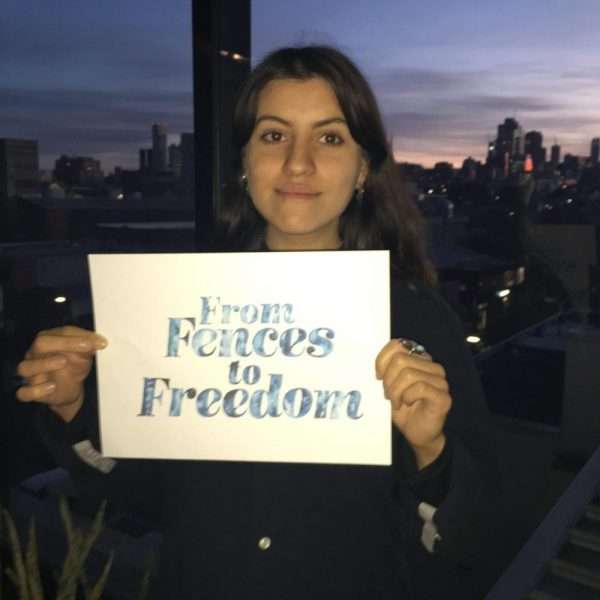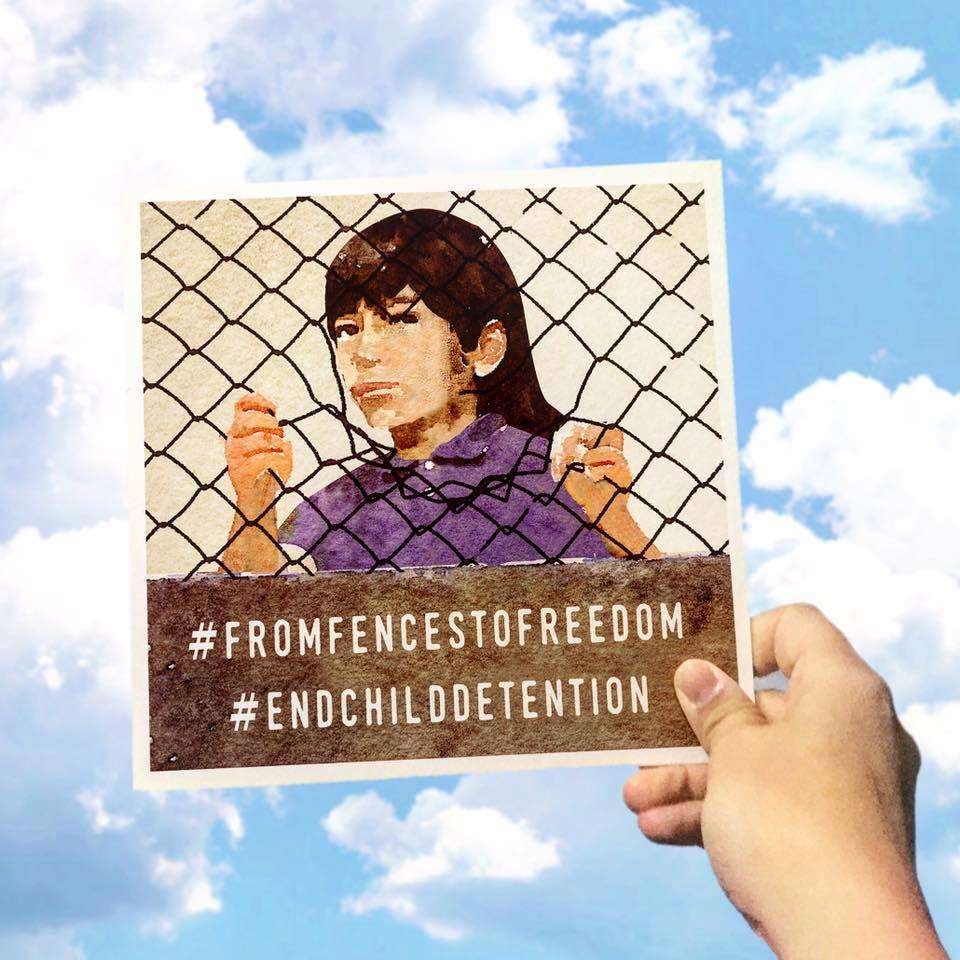Words Make a Difference
by Bella Saltiel
As an advocate for human rights, attempting to decipher international law can be an onerous task. Back in March, our campaign launched a series of infographics to explain how we have pushed UN bodies to clarify laws about children in detention. We are most proud of our efforts to change the wording of The Conventions of The Right of The Child (CRC), but – as it turns out – these changes are not altogether obvious. One of our supporters pointed this out when she asked us how we have made a difference to anything when the CRC has been the same since the 1950s?
Certainly, when I began working on this campaign, what was the least clear to me was how the campaign manages to make an impact on a larger scale. Let’s face it, who and how laws are made is fairly obscure, so the idea that individuals could effect change on this huge system seems far-fetched. Here is a big and troubled world, how do we organise it? Just take a look at the hundreds of treaties and conventions on the UN website and you get an idea. Treaties are agreed upon by states at UN summits to protect citizens. That’s when we come in: once treaties have been signed it is up to us all to make sure states meet their agreements.
Organisations like The End Child Detention Campaign and the CRC can form a coalition and put pressure on policymakers if we don’t agree with their actions. We do this by running public campaigns, targeting individuals, presenting case reports at global meetings (such as the UN summits), or asking for clarification about the wording of human rights laws. By spreading our knowledge about children in immigration detention we are able to inform decision makers which puts pressure on them to change harmful practices. Individuals can also hold states accountable by lobbying them with the same information. Since governments need their constituents support, they tend to care about the same issues as we do.
The truth is, it’s hard to imagine that there are actually real people out there having real conversations about real human rights issues. But, I can assure you that there are. Do you remember that phrase ‘knowledge is power’? Our conversations are a bit like that; by informing each other, and sharing information, we are actually able to effect change.

So, back in 2012, The Global Campaign and CRC put pressure on policymakers to clarify their position that the detention of migrant children is never in the best interests of a child. You see, the text written in the original 1950s document was too vague. It said that detention was not in the best interests of a child, but was okay as a measure of last resort. So, that meant that before 2012 all states thought that children could be detained as a last resort because that’s what it says in the child rights convention (Article 37b). But this applies to all forms of detention. It means a child convicted of a crime can only go to prison as a last resort, or children who are seriously unwell can only be involuntarily detained in a hospital as the last resort. However, in 2012, the committee had a debate about whether this was true for children who don’t have the right migration papers. After a big discussion, the committee decided that migration can never be the reason a child gets detained. They said that immigration detention is a child rights violation, and never in the best interests of the child.
From this:
No child shall be deprived of his or her liberty unlawfully or arbitrarily. The arrest, detention or imprisonment of a child shall be in conformity with the law and shall be used only as a measure of last resort and for the shortest appropriate period of time.
To this:
The detention of a child because of their or their parent’s migration status constitutes a child rights violation and always contravenes the principle of the best interests of the child. In this light, States should expeditiously and completely cease the detention of children on the basis of their immigration status.
See you the huge implications?
In the end, it actually helped us to rewrite our website so that it was a lot clearer for everyone to understand, including me. Our actions were important because now that these laws have been clarified, and published where everyone can see it, when we call out states for child rights abuses, we have a better leg to stand on. Migrant children should never be detained, not even as a last resort.



